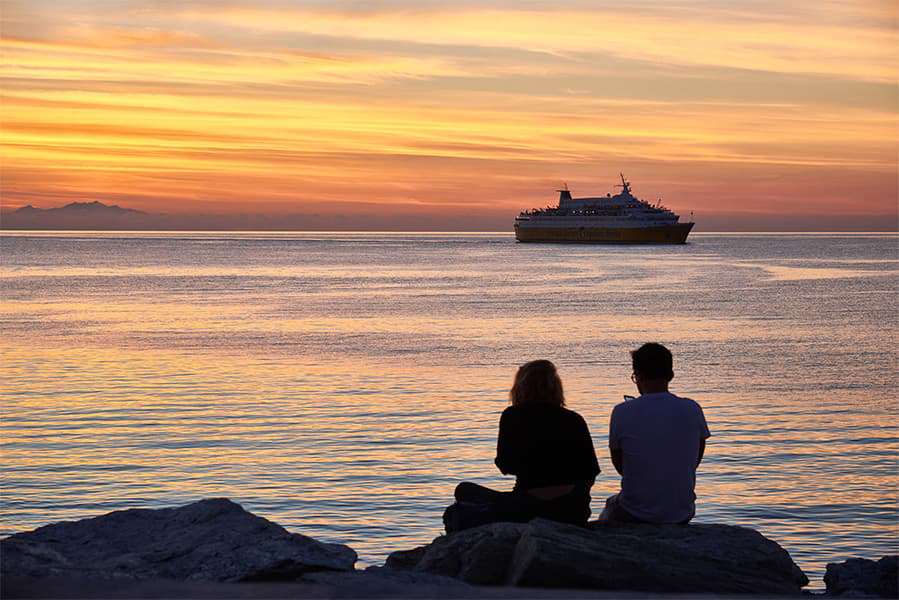Busan - Tsushima (Hitakatsu)
Ferries to Kyushu
Busan - Tsushima (Hitakatsu)
Ferries to Kyushu

The Busan Tsushima (Hitakatsu) ferry route is currently not sailing. Busan Tsushima (Hitakatsu) sailing durations and frequency may vary from season to season. View our Deal Finder for alternative routes and compare prices, times and schedules.
More routes than anyone else.

Compare fares, times & routes in one place.
Change plans easily with flexi tickets.

Book e-tickets & manage trips in-app.
Live ship tracking & real-time updates.

Top-rated customer support when you need it.
The port city of Busan is South Korea’s largest terminal and the second most populous city behind the capital, Seoul. There are sailings to the Japanese cities of Hakata and Osaka from the port with Panstar Cruise, Camellia Line and JR Kyushu Jet Ferry.
What is there to do in Busan?
With rugged mountains and sandy beaches, Busan is situated in the heart of beautiful landscape. The city itself has a huge amount on offer, not just stunning vistas, with hot springs, sensational seafood, chic bars and cafes and plenty of museums and cultural sights for you to enjoy. Beomeosa and Yonggungsa temples give visitors a chance to experience Korean culture, whilst the aquarium and Taejongdae Resort Park offer fun days out. There’s something for everyone.
What about the transport links?
With the city containing over three and half million people, transport is not an issue. There is a subway service, bus routes and national railway as well as Gimhae International Airport in close proximity. Many of the links stop right outside the terminal.
What services does the port provide?
The Port of Busan is an important gateway to the south of Japan. There are daily sailings to Hakata, taking three hours with JR Jyushu Jet Ferry and eleven and a half hours with Camellia Line. There are also three weekly sailings to Osaka, supplied by Panstart Cruise. This journey take nineteen hours.